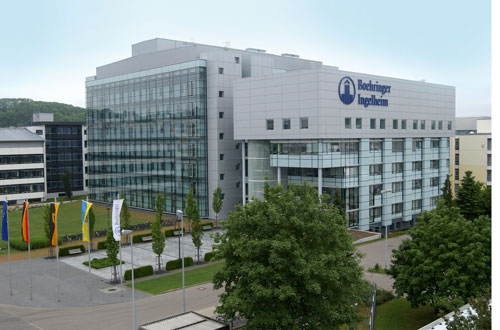
Strong sales of diabetes therapy Jardiance helped Boehringer Ingelheim to a solid if unspectacular first half, as it shrugged off the continuing impact of generic competition to respiratory drug Spiriva.
The privately-held German drugmaker posted pharmaceutical sales of €6.8bn in the six-month period – a €700m increase year-on-year – powered by a 45% hike in Jardiance (empagliflozin) revenues to €1bn.
Jardiance, partnered with Eli Lilly, has been benefitting from a new claim on the label arising from the EMPA-REG OUTCOME trial, which showed the drug could cut cardiovascular and kidney failure risks in diabetes patients, as well as side-effect concerns that have dogged Johnson & Johnson’s first-to-market rival Invokana (canagliflozin).
Boehringer said in its interim results statement that it is anticipating further upward momentum if it can claim an approval for the SGLT2 inhibitor for people with chronic heart failure, with and without type 2 diabetes, which was recently given a fast-track review by the US FDA.
The new indication is based on the EMPEROR trials programme which isn’t due to generate results until 2020, and the fast-track status is an indication of the dire need for new CHF therapies.
Meanwhile, Boehringer is also testing the impact of empagliflozin on heart and kidney diseases in patients with chronic kidney disease (CKD), again with and without type 2 diabetes in the EMPA KIDNEY trial, which is scheduled to read out in 2022.
Analysts at Evercore ISI have suggested that Jardiance could hit sales of $4bn at peak if Boehringer and Lilly can extend the label.
Boehringer’s pharma division also benefited from a gain for Ofev (nintedanib), its drug for idiopathic pulmonary fibrosis (IPF), which grew almost 22% to €677m in the first half.
Boehringer recently reported a phase 3 trial (SENSCIS) showing that the drug also has potential treating interstitial lung diseases in patients with systemic sclerosis, an indication that was backed by an FDA advisory committee last month. If approved, it will become the first medicine approved in the US for the treatment of these patients.
Boehringer didn’t publish sales figures for Spiriva (tiotropium), a drug for chronic obstructive pulmonary disease (COPD) that brought in €2.4bn last year but is now off-patent in most markets around the world.
Boehringer has been trying transfer patients from Spiriva to new combination Spiolto (tiotropium/olodaterol), but has reportedly been encountering payer resistance. Meanwhile, the COPD category has been affected by the arrival of generics of big-selling brands like GlaxoSmithKline’s Advair (salmeterol/fluticasone propionate).
Boehringer has responded to the competition to Spiriva by cutting its workforce in Europe and the US, and negotiating a series of bolt-on deals to bulk up its pipeline with a particular emphasis on adding oncology assets.
Last month for example it signed a €325m deal to acquire AMAL Therapeutics to gain access to its cancer vaccine technology, and in April forged a $226m alliance with UK-listed biotech PureTech Health to develop a new approach to cancer immunotherapy.




